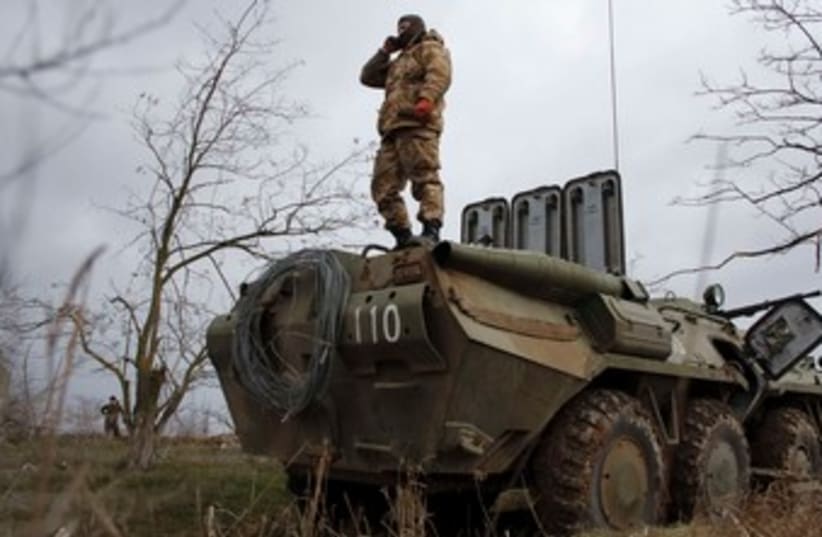Ukrainian Jewish Committee: Russian claims of anti-Semitism in Crimea are lies, propaganda
The situation is being manipulated to give the impression Russia is protecting Jews by taking over contested peninsula, says Dolinsky; Feldman: Crimean Jews are divided over secession.
